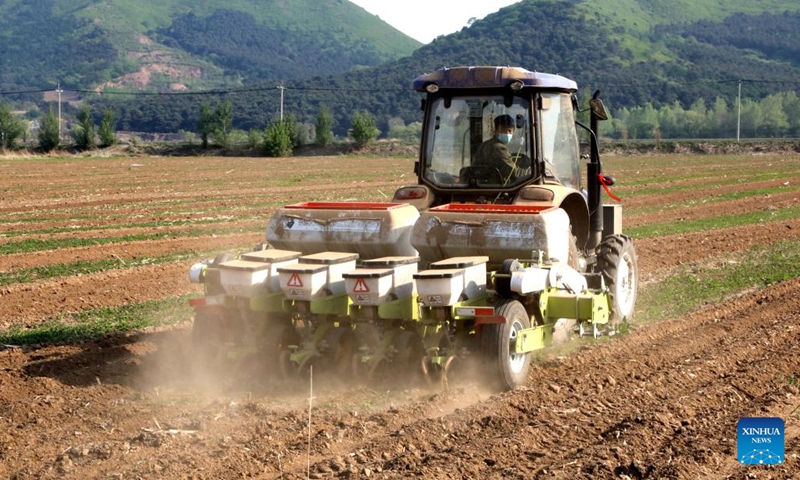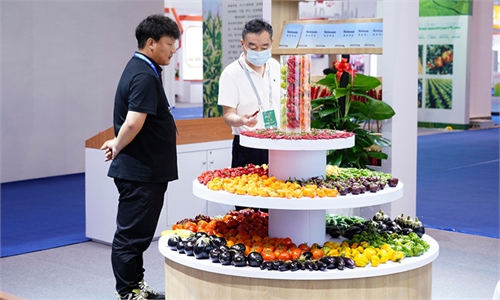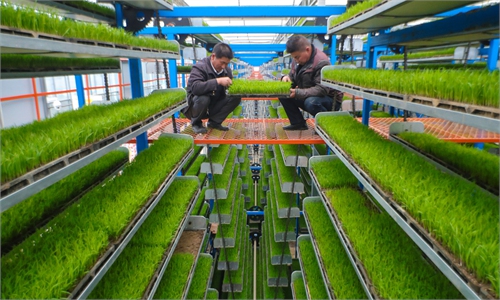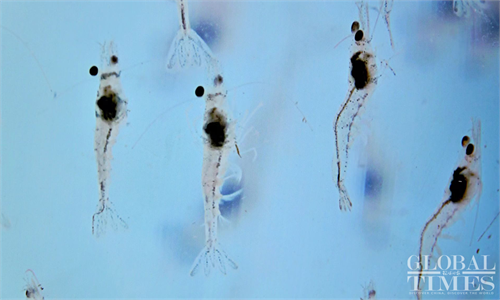
A farmer operates a machine to sow soybean seeds in a field in Fanhe Township of Tieling, Northeast China's Liaoning Province, May 11, 2022. Photo: Xinhua
China's first safety certificate for plant gene editing has been issued by the Ministry of Agriculture and Rural Affairs (MOA) recently, approving that gene editing in China has entered the fast lane for the sector's development and industrialization, which will further guarantee food security.
High oleic acid soybean by Shandong BellaGen Biotechnology Co received the gene editing safety certificate, valid for five years until April 2028, read a document issued by the MOA.
BellaGen is the first company in China to initiate industrial-scale plant gene editing.
Gene editing is an advanced technology in the field of biological breeding in the world. Unlike genetic modification (GM), gene editing breeding modifies only the genes of a particular crop itself, instead of genes of other species. It works in the same way as conventional mutagenesis breeding and produces the same varieties as conventional breeding.
Gene editing breeding has a congenital advantage, which can produce high yield and high value-added varieties quickly. Gene editing will play an important role in the development of Chinese seed industry, an industry insider surnamed Wang told the Global Times on Friday.
"The release of the Evaluation Rules for Gene Editing Plants for Agricultural Use (Trial) in April 2023, along with the issuance of the first safety certificate for plant gene editing, has instilled hope within the agriculture industry for the revitalization of the national seed industry," said Wang.
He noted that favorable policies have been implemented in the field of gene editing since 2022, helping gene editing enter the fast lane for development and industrialization.
On January 24, 2022, the MOA issued the Guidelines for Safety Evaluation of Gene Editing Plants for Agricultural Use (Trial), which for the first time promulgated relevant policies and management measures for gene-editing technology for agricultural use, and clarified the difference between gene-editing products and GM crops management based on the scientific attribute that gene-editing products do not contain exogenous genes.
The No. 1 central document in 2023 once again pointed out that major biological breeding projects should be comprehensively implemented and national breeding joint research should be steadily promoted.
"Only by holding seeds in our own hand can we secure China's rice bowl and achieve food security," said Wang.
Global Times



